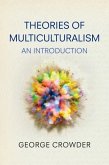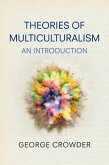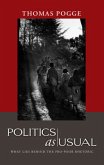Anarchy, State, and Utopia: An Advanced Guide presents a comprehensive and accessible introduction to the ideas expressed in Robert Nozick's highly influential 1974 work on free-market libertarianism--considered one of the most important and influential works of political philosophy published in the latter half of the 20th-century.
_ Makes accessible all the major ideas and arguments presented in Nozick's complex masterpiece
_ Explains, as well as critiques, Robert Nozick's theory of free market libertarianism
_ Enables a new generation of readers to draw their own conclusions about the wealth of timely ideas on individualism and libertarian philosophy
_ Indicates where Nozick's theory has explanatory power, where it is implausible, and where there are loose ends with further work to be done
_ Makes accessible all the major ideas and arguments presented in Nozick's complex masterpiece
_ Explains, as well as critiques, Robert Nozick's theory of free market libertarianism
_ Enables a new generation of readers to draw their own conclusions about the wealth of timely ideas on individualism and libertarian philosophy
_ Indicates where Nozick's theory has explanatory power, where it is implausible, and where there are loose ends with further work to be done
Anarchy, State, & Utopia is one of the truly great political philosophy works of the past century, wonderfully inviting but with complex twists that have intrigued but also puzzled readers. The great merit of Lester Hunt's Guide is to offer a clear and perspicuous map for a new generation entering its precincts. I highly recommend it both to students and their teachers.
Loren Lomasky, University of Virginia
The book's subtitle bills the book as an advanced guide. Guidance it provides: advanced indeed, sympathetic yet critical. The level of insightful detail on the topics of the invisible hand and utopia is unprecedented.
David Schmidtz, University of Arizona
Loren Lomasky, University of Virginia
The book's subtitle bills the book as an advanced guide. Guidance it provides: advanced indeed, sympathetic yet critical. The level of insightful detail on the topics of the invisible hand and utopia is unprecedented.
David Schmidtz, University of Arizona








